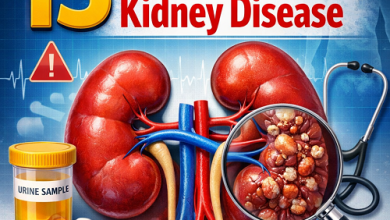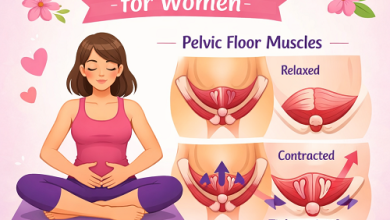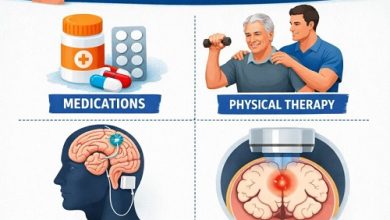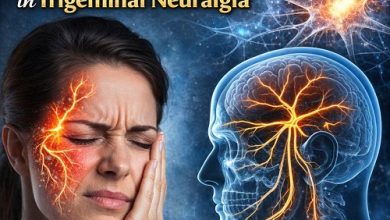How Diet Impacts Esophageal Disorders: Insights from Patients and Practitioners

Esophageal disorders can significantly affect a person’s ability to eat, digest, and enjoy life. These conditions range from acid reflux and gastroesophageal reflux disease (GERD) to more complex issues like achalasia, eosinophilic esophagitis, and Barrett’s esophagus. While medical treatments such as medications and surgical interventions are available, many patients and practitioners are now exploring the role of diet and alternative medicine for achalasia treatment and related disorders.
Through real-life experiences and clinical insights, how dietary changes, functional nutrition, and supplements to help with achalasia symptoms can provide relief, improve quality of life, and in some cases, delay the need for invasive procedures.
Understanding Esophageal Disorders
Esophageal disorders are conditions that disrupt the normal functioning of the esophagus — the muscular tube responsible for transporting food from the mouth to the stomach. These disorders can include:
- Achalasia – a rare condition where the lower esophageal sphincter fails to relax, making swallowing difficult.
- GERD (Gastroesophageal Reflux Disease) – when stomach acid flows back into the esophagus, causing irritation.
- Barrett’s Esophagus – often caused by chronic GERD, it can lead to cellular changes in the esophageal lining.
- Eosinophilic Esophagitis – an allergic condition causing inflammation of the esophagus.
Each of these conditions may present with symptoms like chest pain, regurgitation, difficulty swallowing, heartburn, or weight loss. Traditional treatments include medications like proton pump inhibitors, dilation procedures, or surgery. But increasingly, patients are finding relief through diet and alternative medicine for achalasia treatment, particularly when conventional therapies fall short.

The Role of Diet in Managing Esophageal Disorders
1. Soft and Moist Foods for Easier Swallowing
Patients with achalasia or strictures often struggle with swallowing solid foods. Dietitians and practitioners recommend a soft diet rich in well-cooked vegetables, pureed soups, mashed fruits, and ground meats.
Patient Insight:
“I started blending my meals into smoothies and soups. I was surprised how much easier it became to eat without discomfort,” shares Asad, a 45-year-old achalasia patient from Lahore.
2. Small, Frequent Meals
Large meals can trigger reflux or make it difficult to pass food through a narrowed esophagus. Smaller, more frequent meals are a key dietary strategy.
3. Avoiding Trigger Foods
Patients with GERD or eosinophilic esophagitis benefit from avoiding foods that relax the lower esophageal sphincter or trigger allergies. These often include:
- Spicy foods
- Caffeine
- Alcohol
- Chocolate
- Citrus
- Dairy (for those with intolerance)
4. High-Calorie, Nutrient-Dense Foods
Weight loss is common in patients with severe esophageal dysfunction. High-calorie, easy-to-swallow options like avocado, nut butters (if tolerated), and nutritional shakes help maintain body weight and prevent malnutrition.
Insights from Practitioners: Nutrition as Preventive and Supportive Therapy
Functional medicine practitioners emphasize that esophageal disorders are not isolated issues but often symptoms of systemic imbalances — such as inflammation, immune dysregulation, or gut microbiome disruption.
“For achalasia, we look beyond the mechanical obstruction. In many cases, we find links with autoimmune conditions or chronic inflammation. That’s where nutrition, lifestyle changes, and alternative medicine for achalasia treatment really come into play,” says Dr. Ayesha Khan, a holistic gastroenterologist.

Alternative Medicine for Achalasia Treatment: An Emerging Frontier
While Western medicine has not yet identified a cure for achalasia, alternative therapies are increasingly being explored to alleviate symptoms, delay progression, and support overall health.
1. Herbal Remedies
Certain herbs used in traditional Chinese and Ayurvedic medicine have shown promise:
- Licorice Root (DGL form) – Soothes mucosal linings and reduces inflammation.
- Slippery Elm – Forms a protective layer in the esophagus and helps ease irritation.
- Chamomile – Anti-inflammatory and calming to the digestive tract.
“Slippery elm was a game-changer for me. It didn’t cure the condition, but it made swallowing much easier,” explains Nasreen, a patient managing early-stage achalasia.
2. Acupuncture
Some studies suggest acupuncture can improve esophageal motility and reduce anxiety associated with achalasia.
3. Homeopathy
Although scientifically debated, many patients turn to homeopathy for chronic achalasia symptoms. Remedies like Phosphorus and Ignatia are often used under professional guidance.
4. Yoga and Breathwork
Gentle yoga poses and breathing exercises (e.g., diaphragmatic breathing) support vagus nerve function, which is often impaired in esophageal disorders.
Supplements to Help with Achalasia Symptoms
Nutritional and herbal supplements can be beneficial adjuncts to a dietary and medical approach. Here are some supplements to help with achalasia symptoms, as recommended by integrative medicine specialists:
1. Magnesium
Supports smooth muscle function and may help reduce spasms in the esophagus.
2. L-Glutamine
An amino acid that repairs the gut lining and reduces inflammation — particularly useful if esophagitis or leaky gut is involved.
3. Digestive Enzymes
Help break down food more efficiently, reducing the risk of regurgitation and fermentation.
4. Probiotics
Support a balanced gut microbiome, which may influence immune function and reduce inflammation throughout the GI tract.
5. Curcumin (from Turmeric)
A powerful anti-inflammatory compound that may benefit patients with underlying autoimmune triggers or chronic irritation.
“After starting magnesium and digestive enzymes, my post-meal discomfort dropped significantly,” says Michael, a 39-year-old achalasia patient using an integrative approach.
The Emotional and Psychological Impact: Diet as a Coping Mechanism
Esophageal disorders often have a deep emotional toll, leading to anxiety, fear of eating, and social withdrawal. Patients frequently express frustration about their restricted diets.
“I avoided dinners with friends for over a year. I was afraid I’d choke or feel embarrassed,” says Rabia, who now manages achalasia with a personalized nutrition plan and alternative medicine for achalasia treatment.
Practitioners note that empowering patients with dietary control not only improves symptoms but restores confidence and social functionality.

Personalized Diet Plans: One Size Doesn’t Fit All
No single diet works for every esophageal disorder. Personalized nutrition plans created with a registered dietitian or holistic nutritionist ensure optimal results.
Factors to Consider:
- Type and severity of disorder
- Allergies or intolerances
- Weight status
- Co-existing GI issues (e.g., IBS, SIBO)
- Access to food and ability to prepare specialized meals
Real-World Case Study: Integrating Diet and Alternative Therapies
Case: Farah, Age 50 – Diagnosed with Achalasia
Symptoms: Difficulty swallowing, chest pain, 8 kg weight loss
Medical Treatment: Balloon dilation
Alternative Therapies Used:
- Adopted a soft, plant-based diet
- Daily magnesium glycinate and L-glutamine supplements
- Acupuncture sessions twice a week
- Yoga breathing exercises
Results after 3 Months:
- Improved appetite
- Regained 3 kg
- Reduced reliance on pain medication
- Improved mental well-being
“This holistic plan gave me a sense of control over my condition. I now live with achalasia instead of suffering from it,” she shares.
Future Directions: Bridging Traditional and Alternative Approaches
The future of esophageal disorder treatment lies in integration. Medical therapies like POEM (Per-Oral Endoscopic Myotomy) or Heller myotomy are life-changing for some patients. But integrating alternative medicine for achalasia treatment, such as herbal protocols, targeted supplements, and individualized diets, provides a complementary approach that focuses on long-term management and patient empowerment.
Healthcare providers are increasingly recognizing the importance of dietary and nutritional support as a first-line or co-treatment — particularly in early or moderate stages of esophageal disorders.
Conclusion
The impact of diet on esophageal disorders cannot be overstated. For patients and practitioners alike, a food-first approach — paired with alternative medicine for achalasia treatment and supplements to help with achalasia symptoms — offers promising avenues for relief, resilience, and a better quality of life.
Whether you’re a patient newly diagnosed with achalasia or a practitioner seeking more comprehensive tools, embracing nutritional therapy and holistic care may be the turning point in managing esophageal disorders successfully.
Takeaway Tips:
- Focus on soft, easily digestible foods.
- Avoid known triggers like caffeine, citrus, and spicy items.
- Consider magnesium, L-glutamine, and digestive enzymes to reduce symptoms.
- Explore gentle holistic practices like acupuncture, yoga, or herbal therapy.
- Work with an integrative team for a customized, sustainable plan.




